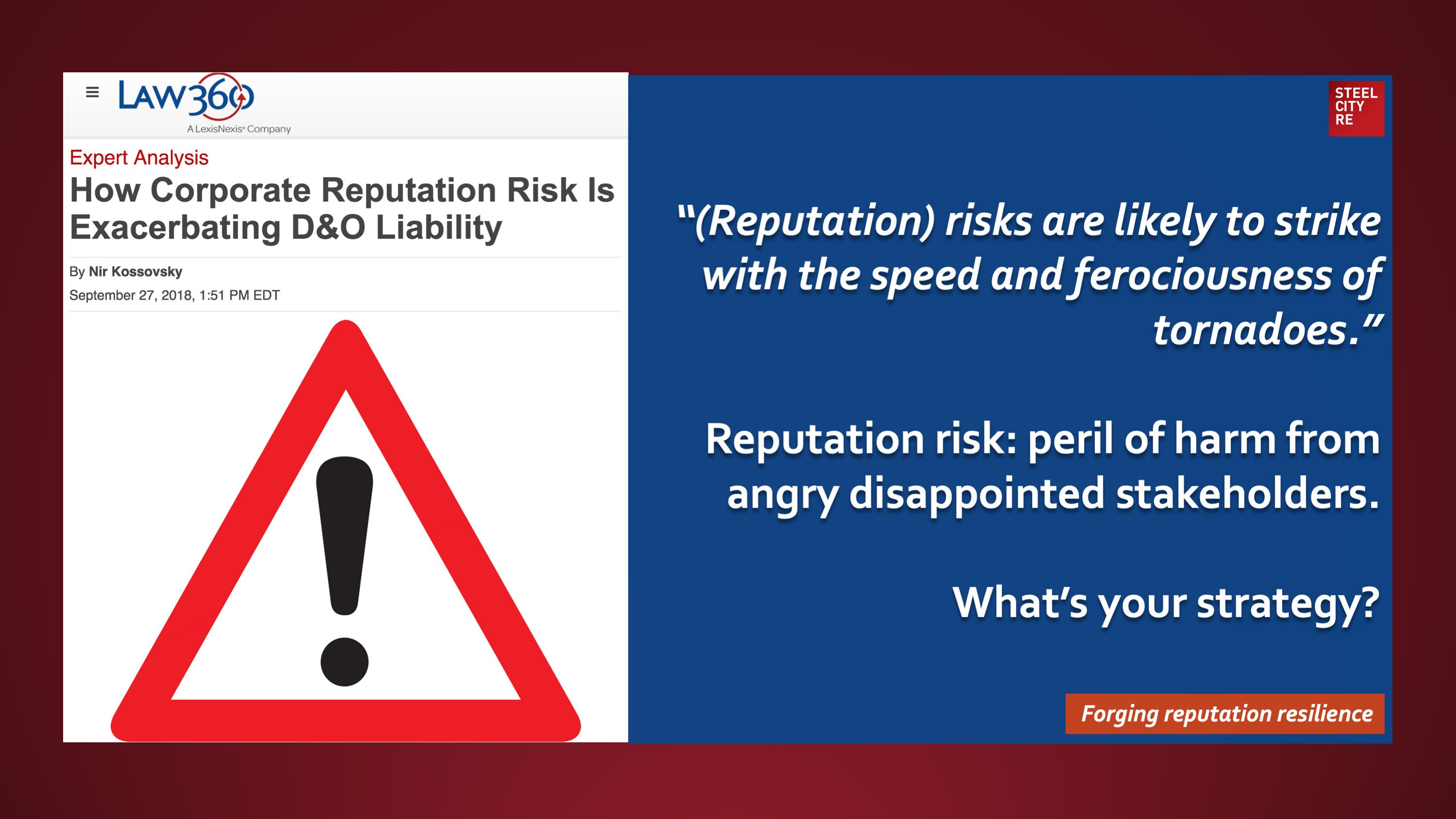However, since 2014, the American Law Institute has been developing a framework titled “Compliance, Enforcement, and Risk Management for Corporations, Nonprofits, and Other Organizations.” The work products remain a well-protected secret, but based on the type of intelligence Kremlin watchers used to gather to discern Soviet-era intentions, it can be expected that the ALI standards will reflect the legal community’s newly acquired recognition of the interactions between compliance, director and officer liabilities, economics, and cognitive sciences. Specifically, such governance standards will likely speak to the fact that while director and officer liability will be adjudicated in the courts of law, director and officer culpability will be adjudicated in the courts of public opinion.
This intersection of business; social, political and cultural; and regulatory expectations of companies and their leadership — reputational risks — comes at the same time that a slower evolution has been taking place in the fiduciary duty standards for public company boards. Broadly speaking, as first recognized by Chancellor William T. Allen in In re Caremark and as developed in subsequent cases and endorsed by the Delaware Supreme Court in Stone v. Ritter, boards are responsible for overseeing the core activities of management both in carrying out business and in safeguarding firms from risk. Board duties of care and “information” for the past two decades have been interpreted narrowly with respect to compliance with the law.
There is a centuries-old folk curse that says, “May you live in interesting times.” For the directors and executives of public companies, these are exceedingly interesting social and political times. Culturally driven tolerance of sins in industry (#MeToo), sinful industries (#boycottNRA) and soul-selling industries (#deleteFacebook) have notably shifted over the past two years. As a result, the landscape of corporate risk is shifting rapidly, producing reputation risk tornadoes that, for the #MeToo movement alone, have swept up more than 400 high-profile executives and employees as of June 2018. Meanwhile, politically driven changes in the landscape of corporate risk have ranged from the market-moving shocks of presidential tweets, director and officer civil suits for the social consequences of opioid addictio] and criminal indictments against officers for environmental crises arising from climate change.
October 25, 2018
Law360
Boards should be “paying attention to reputation as an issue, asking management reasonable questions about reputational risk, and listening carefully to the answers that come back.”

